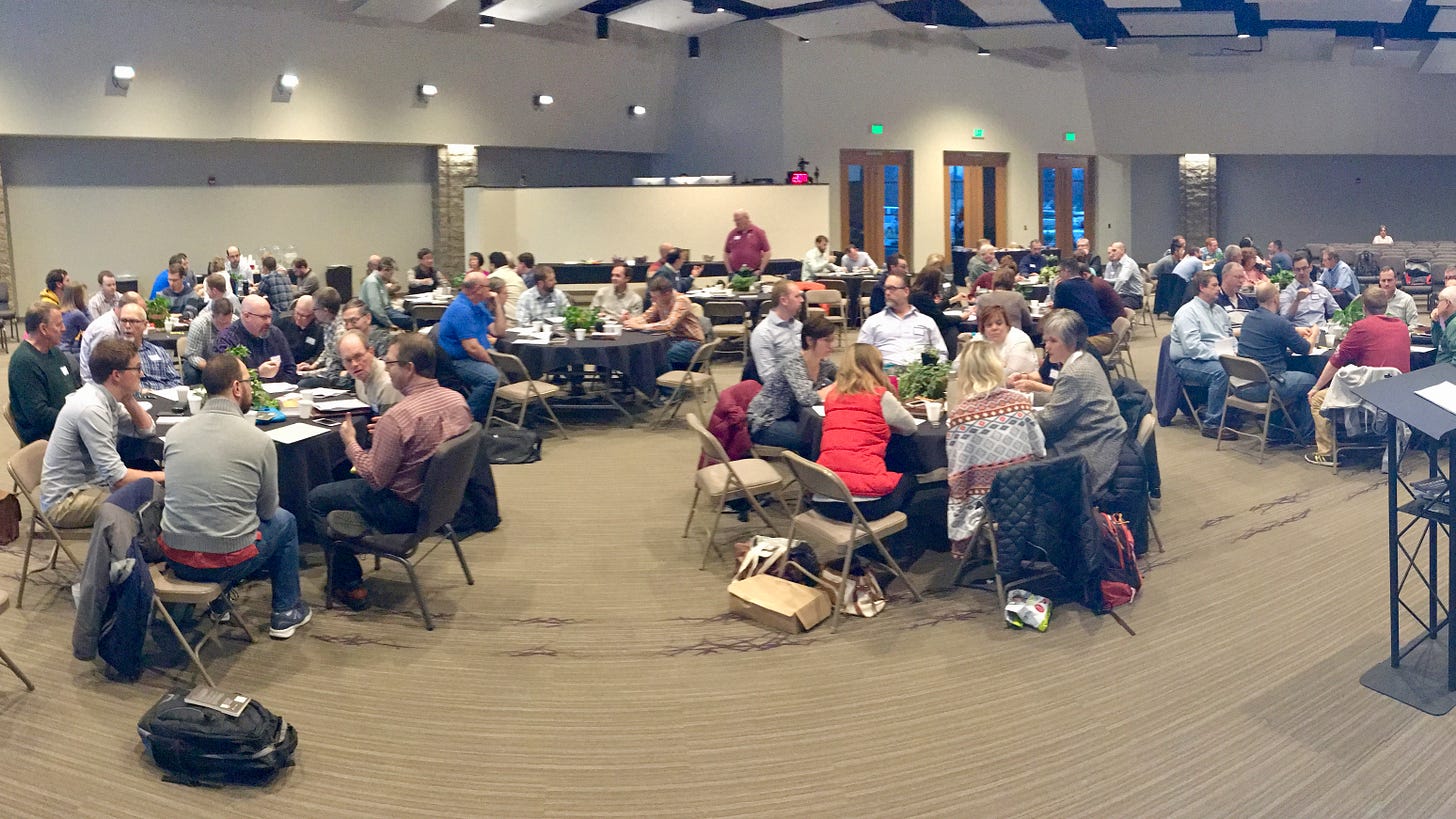I made a bit of a blunder in last week’s Payneful Truth. Yes, I hear you say, you wrote in very short, simplistic fashion about feminism. You should have known.
But no, that’s not what I mean. I’m talking about the line in my spiel about becoming a ‘partner’ where I said: “from Sept 4 onwards, only partners will get The Payneful Truth every week (every third edition or so will go out free to the whole list.)”
What I meant to say was “from Aug 4”—which is next week.
For the blessed among you who have already joined up as partners (thank you!), it won’t make any difference of course. You’re all set. But for those who have not gotten around to it yet—it means that it’s time to get organised. If you’d like to get next week’s edition, and to keep reading or listening every week, you have two options:
click the button below to join as a partner (do it now before you forget);
or if you’re not in a position to be a partner at this point but would still like to get every edition (every week), just send an email to tonyjpayne@me.com saying simply “Please put me on the free weekly list”.
And if you’re content to get the occasional free edition every third week or so, no need to do anything. That will be the default outcome. God bless you and I’m delighted to have you on board!
Thanks, too, to those who got in touch about feminism. I asked you how to improve my little summary, and you’ve helped me to do that in several ways (the version on the website has now been updated with those improvements). Of course the main weakness in my little summary was also its strength—that it was so short. If you’d like to read something on the subject that goes into more detail (and more nuance), I’d suggest these two articles by Katie Stringer and Ruth Baker, both of whom interacted very graciously with me about the article.
Some of you asked for more on the subject, particularly about the other side of the coin—that is, the ways in which men have contributed to the problem, and how men should respond. I’ve started to draft the companion piece—‘Shortest summary of masculism ever’—and if I manage to get over my masculine failings will send it out in the next few weeks.
But onto this week’s post.
What if ministry doesn’t work?
In my recent ‘Essential Services’ series about the non-negotiables of church and ministry, I argued that our essential task is to be Christ’s fellow-workers in building his heavenly church, and that the nature of our work could be described in simple terms as the apostolic ministry of word and prayer.
Someone emailed back with a very good question: But what if that doesn’t work?
What if you’ve been labouring away faithfully in the word and prayer—whether as pastor or a keen layperson—and things are pretty stagnant or even going backwards? No-one is getting converted. Disciples are not noticeably growing in maturity. Numbers are steady or declining. What then?
In a sense, a book or two is required to answer this question—and you can’t say I haven’t tried. The Trellis and the Vine and particularly its sequel, The Vine Project, are really attempts to answer this question. Providing an answer in 900 words is a challenge. But I love a challenge, and so here is my best shot, in six points.
First of all, beware any ministry author or guru who says that this kind of question is susceptible to a simple, short-term or mono-causal answer. It takes time and persistent effort to diagnose what ails any particular ministry that is not experiencing healthy gospel growth, and to arrive at a plan for change. The problem is usually cultural—which is to say that it’s bound up with a wide range of activities, traditions, personalities, structures and values that your ministry has come to embody. It’s rarely one thing; it’s usually the whole thing. And it takes time to figure this out. (Free plug: I’m a big fan of Craig Glassock and the Vinegrowers ministry (link); they help churches figure this out and walk through a ‘culture-change process’ over time.)
As per my earlier piece on the ‘principles of pragmatism’, it’s also important to interrogate the circumstances closely to clarify what we mean by ‘not working’. What would be our criteria for saying that the ministry ‘is working’ or not? What would ‘working’ look like for us, theologically and contextually? Numbers will no doubt be involved, but let’s be clear at the outset which numbers or indicators are significant, and why.
In describing the ‘word’ part of ‘word and prayer’ ministry, I suggested that the goal for churches is to “create, foster, equip and organise as many effective contexts and opportunities as possible in which the word of truth is being spoken by the members of the body for the building of the body”. In my experience, one reason that apostolic word ministry is ineffective is not that it’s been tried and found wanting, but that it hasn’t been tried enough. How many effective contexts or opportunities for word ministry exist in your church, and among the non-Christian networks you are trying to reach? How many people have been equipped to participate in them? How well do these various efforts align or dovetail with one another? Or is the Sunday service and sermon mostly it? The problem may be a truncated or inadequate ministry of the word.
The same can be said for ‘prayer’. Is it that we’ve tried prayer and it didn’t ‘work’? Or would a clear-eyed evaluation of our prayer lives, corporately and individually, conclude that we are falling considerably short of ‘devoting ourselves to it’? The problem may be a truncated or inadequate devotion to prayer.
Experience and theological conviction both suggest that if we create a culture in which there are lots of effective, interconnected word ministry contexts (aimed at Christians and non-Christians), and plenty of devoted prayer, then by the sovereign work of God’s Spirit there will be healthy growth. But moving from a church culture in which that is not the case to one that is takes hard honest thinking and talking, sacrificial action, working closely together, and persisting in all of that over time—which is to say that it requires leadership and teamwork. The sort of leadership I’m talking about combines theological insight, teaching ability, godly character and competence—i.e. the leadership seen in the portrait of the elder or overseer in the pastoral epistles. This is where ‘leadership development’ can be genuinely helpful. (Free plug: I’m involved with the efforts that Reach Australia is making to provide this kind of leadership development. Check out the link for details.)
A similar way of expressing point 5 is to say that sometimes the issue can be one of tactics more than strategy. The strategy or over-arching ‘how’ of ministry is quite simple, and has already been outlined above—lots of well-equipped, interconnected word ministry in and through God’s people; lots of urgent, persistent prayer. In my observation, some pastors grasp this overall strategy clearly enough, but aren’t as thoughtful, gifted or skilled in how to implement it on the ground—how actually to get it done with the group of people God has given us; how to assess and reform the various ministry structures (or trellises) that we have; how to work together as a staff team more effectively; and so on. Again, this is often where an outside eye can be super helpful (some input, coaching, consultancy or leadership development).
All of which is to say that God has given us three invaluable gifts to make apostolic ministry ‘work’—his powerful Word that pierces through everything; his life-giving Spirit that brings life in response to our prayers; and the blessing of being fellow-workers not only with him but with each other. He’s given us the joy of labouring alongside each other, and benefitting from each other’s gifts and wisdom.
And let’s face it: we really need each other, because in one way or another, all our ministries aren’t working.
This week’s random image is from a Vinegrower’s Workshop I helped run in Lansing, Michigan back in 2017. Note the vine-themed table ornaments …














What if ministry doesn’t work?